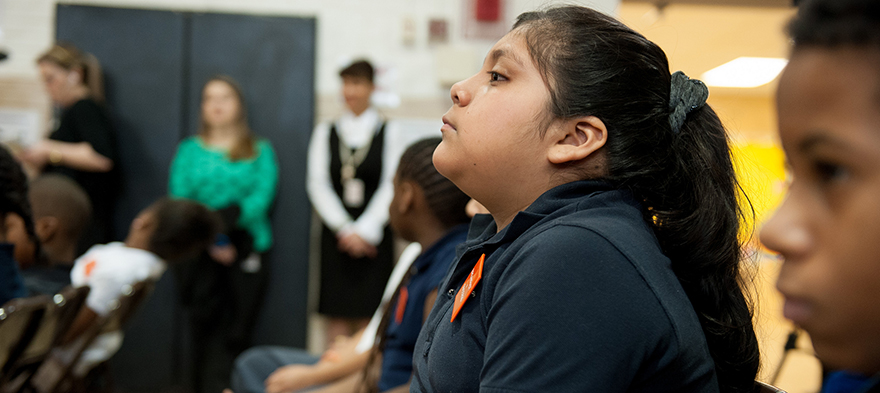
Sara Gips Goodall is the principal of McGlone Academy, a public ECE-8 school in Far Northeast Denver. Sara’s life’s work has been rooted in educational equity, working with international NGOs, teaching a bilingual classroom, and then moving into school leadership. A member of Harvard’s 2012 School Leadership Program, her internship at Orchard Gardens K-8 solidified her belief in the power of public school turnaround focused on data, arts, community, and teacher sustainability. She returned to Denver to join Denver Public School’s turnarounds, and took over McGlone Elementary. McGlone is a public innovation school (70 percent English-language learners, 95 percent free- and reduced-price lunch), and since turnaround, McGlone has catapulted from one of the lowest-performing schools to a top growth school for the past five years, and last year, expanded to become an ECE-8 Academy. Under Sara’s leadership, McGlone went from 10 percent staff retention to 90 percent, increased over 200 in enrollment, and went from red to green on the Colorado SPF.
If you have a child with disabilities, you’re not alone: According to the latest data, over 7 million American schoolchildren — 14% of all students ages 3-21 — are classified as eligible for special...
The fight for educational equity has never been just about schools. The real North Star for this work is providing opportunities for each child to thrive into adulthood. This means that our advocacy...
The story you tell yourself about your own math ability tends to become true. This isn’t some Oprah aphorism about attracting what you want from the universe. Well, I guess it kind of is, but...
Your donations support the voices who challenge decision makers to provide the learning opportunities all children need to thrive.
Ed Post is the flagship website platform of brightbeam, a 501(c3) network of education activists and influencers demanding a better education and a brighter future for every child.
© 2020–2024 brightbeam. All rights reserved.